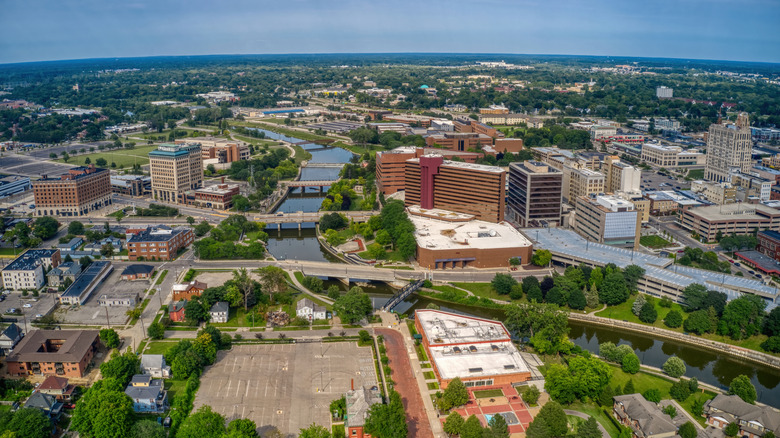It’s likely that the name “Flint, Michigan” brings to mind the water crisis that hit the town from 2014 to 2016. At the time, lead-poisoned water and Legionnaires’ disease brought the city into the U.S. national limelight for all the worst reasons. Thankfully, Flint has recovered from that crisis and has its eyes set on the future. In fact, Flint was deemed the No. 1 most affordable city in the U.S. to buy a home in 2025, per a study by WalletHub.
It could be that Flint’s infamous reputation helped make the town so affordable. Flint’s drinking water has been EPA compliant for six years now, so prospective homeowners or renters have nothing to worry about. Plus, buying a house in Flint is actually cheaper than renting. A huge 21% of houses in the town are now vacant, which helps keep prices down and supply up. In fact, Flint also had the lowest median home price, at $61 per square foot. Compare that to New York City, where property goes for over $2,500 per square foot, or the most expensive place on Earth, Monaco, with prices reaching more than $3,600 per square foot.
But affordability isn’t the only thing Flint has going for it. The town’s automotive history can be felt in its streets and seen in the super kid-friendly and educational Sloan Museum of Discovery. It contains the Durant Vehicle Gallery, a walkthrough collection of antique and concept cars. Flint also has heritage sites like the Whaley Historic House Museum, an 1800s-themed walkable village, and other historical, fun spots for visitors and locals alike.
Inside’s Flint, Michigan’s exceptional affordability
To determine that Flint, Michigan, is the most affordable town for would-be homeowners in 2025, WalletHub looked at 10 weighted metrics, including obvious things like housing affordability (the price of houses), cost of living, and real estate tax ratio. It also includes less obvious things like median home price appreciation and quarterly active listings per capita. In other words, other studies might come to different conclusions, but no matter how you cut it, Flint is affordable. It has a population of around 80,000 people, which isn’t so overwhelmingly large that it’ll drive everyone into tiny apartments. This plays a role in its neighborhood compositions and costs, as well.
Those neighborhoods are largely residential, especially to the north and south of Flint’s downtown. For instance, Flint’s northside King Avenue Plus district is full of green spaces and houses dating back to the early 1900s. At the time of this writing, it has an average home value of just under $56,000 (via Homes.com), which is an absolute steal nowadays. Flint’s South Side district has an 80-year history and sits within striking distance of Flint’s historic General Motors Flint Assembly Plant. Houses there have an average value of around $64,000.
Out of Flint’s 48 districts, Woodcroft Estates in the city’s southwestern corner is the most expensive, with an average home price of just $270,000. Prices drop quickly in the second-most-expensive district, College Cultural Neighborhood. As a commercial and residential district, its average home price is $146,000. All this data is to say: Flint has a narrow range of home prices, and even the most pricey homes aren’t impossibly expensive. Prospective buyers have a wide selection of largely affordable neighborhoods to choose from.




